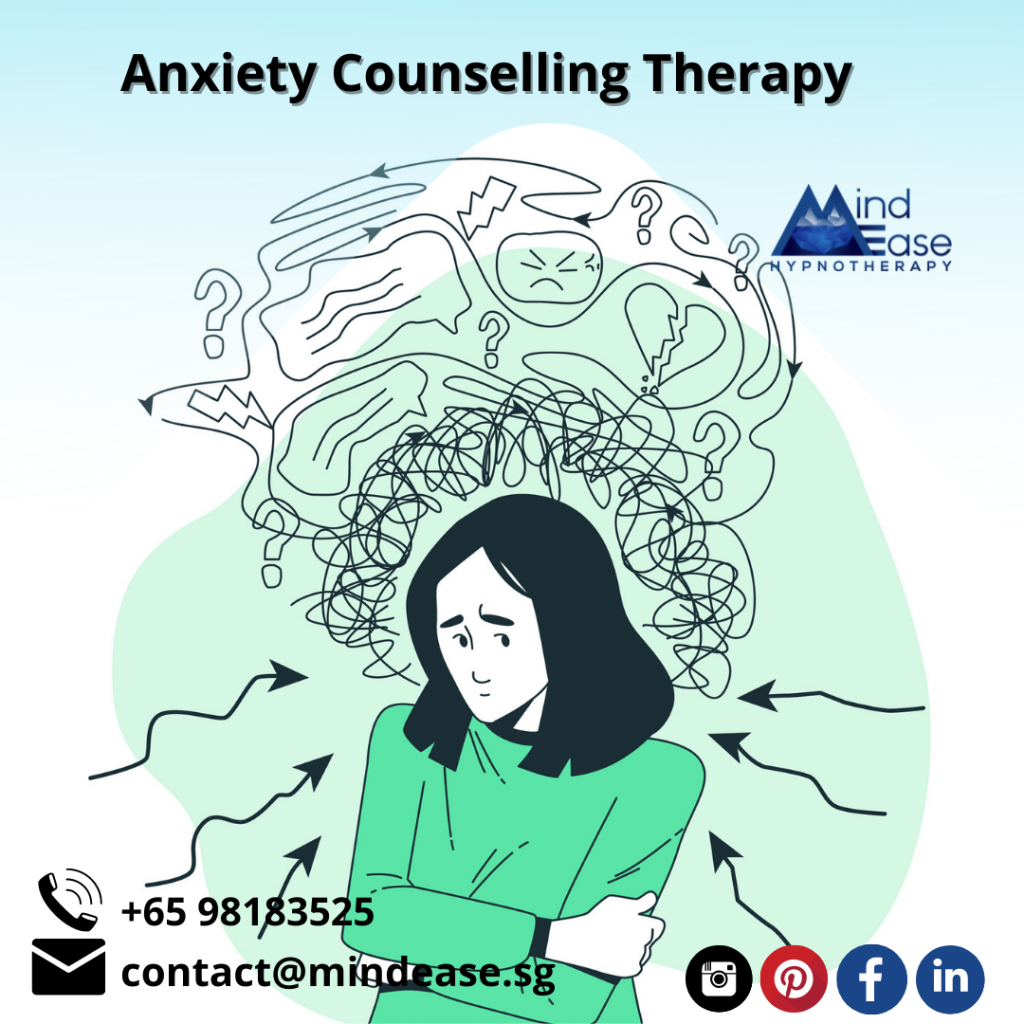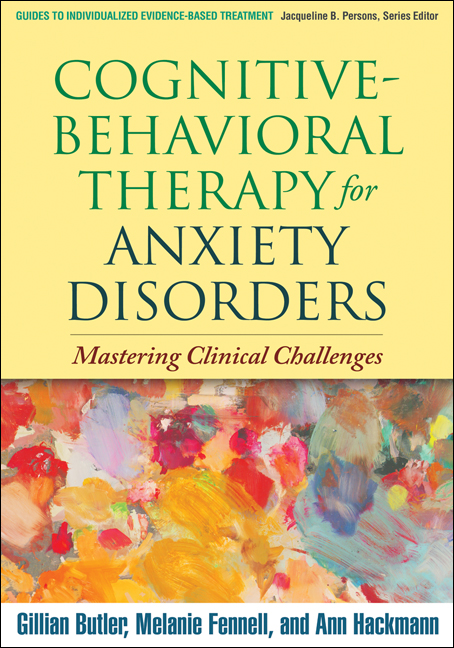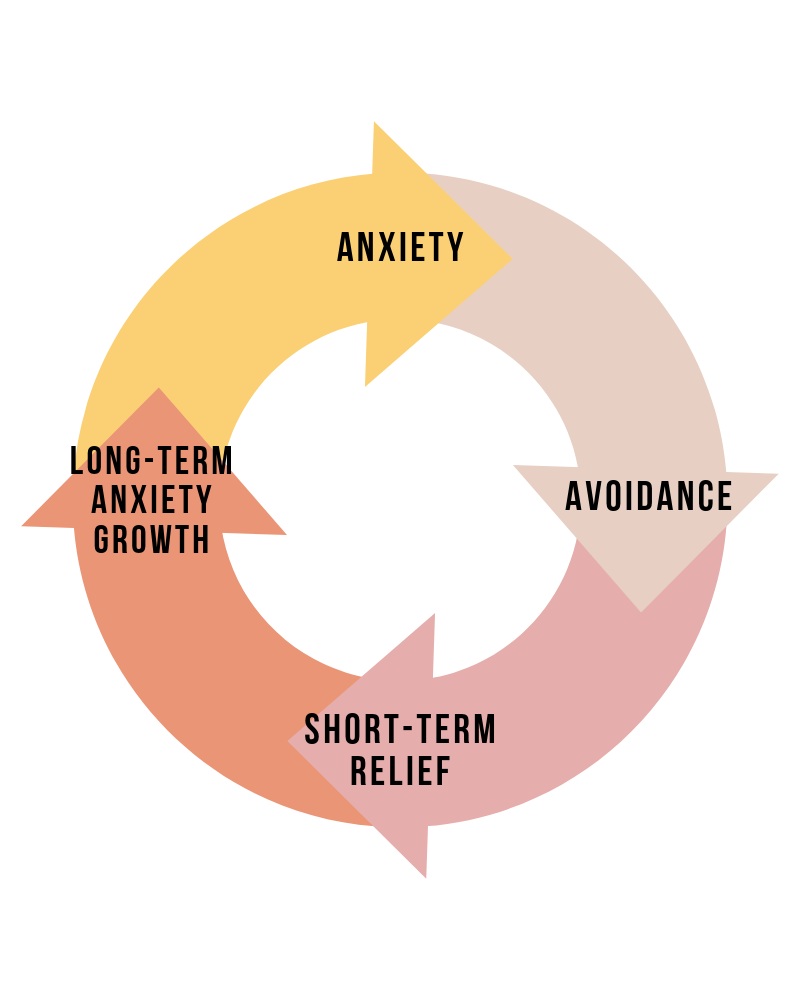Customized counseling services for anxiety that fit your routine
Exploring Various Methods in Coaching for Anxiousness Disorder for Enduring Change
When tackling stress and anxiety problems, it's vital to check out a range of therapy methods. Each approach supplies distinct insights and tools to aid you handle your signs and symptoms effectively. You may locate that combining strategies can produce the best outcomes. Nevertheless, recognizing the subtleties of these techniques is vital to promoting lasting modification. What if the ideal combination could release a new degree of psychological wellness for you?
Understanding Stress And Anxiety Problems: A Quick Summary
Anxiousness problems, which impact millions of people worldwide, can greatly influence every day life. You might experience overwhelming feelings of anxiety or fret that seem uncontrollable. These feelings can bring about physical symptoms like a racing heart, sweating, or perhaps lightheadedness. Typical sorts of anxiousness problems include generalized anxiety disorder, panic attack, and social anxiousness disorder. Each has distinct indications, yet they all share a tendency to interrupt your routine and relationships.Understanding the origin of your anxiousness is crucial. It may come from genes, mind chemistry, or life experiences. Recognizing your triggers can help you handle your reactions better. It's essential to keep in mind that you're not the only one in this struggle. Numerous people encounter similar obstacles, and looking for assistance is a strong step towards feeling better. By finding out about stress and anxiety problems, you're already on the course to understanding and managing your condition extra effectively.
Cognitive-Behavioral Therapy: Challenging Unfavorable Idea Patterns
In Cognitive-Behavioral Treatment, you'll start by recognizing the negative thought activates that contribute to your stress and anxiety. You'll work on changing them with more positive choices once you recognize these thoughts. Together, you'll develop effective coping techniques to assist handle your stress and anxiety in everyday circumstances.
Determining Negative Idea Triggers

When you experience moments of distress, identifying the specific triggers behind your negative thoughts can be necessary in taking care of anxiety. Beginning by taking note of situations that provoke feelings of fear or concern. Is it a jampacked room, a future deadline, or a discussion with specific people? Write down these instances in a journal. This will aid you recognize patterns in your thinking. Notification physical feelings that accompany your unfavorable ideas, like a racing heart or rigidity in your upper body. By determining these triggers, you obtain insight into what's fueling your anxiousness. Comprehending these links is the very first step in testing those ideas and inevitably reclaiming control over your psychological responses.
Replacing Ideas With Positives
Testing negative thought patterns is a necessary action in transforming your mindset and decreasing stress and anxiety. You may often find on your own caught in cycles of self-doubt or devastating reasoning. Instead of letting these thoughts determine your sensations, practice replacing them with positive affirmations or sensible choices. When you think, "I can not manage this," change it to, "I can take care of challenges one step at a time." This simple modification can considerably influence your mood. Routinely determining and countering these unfavorable thoughts assists develop a healthier internal dialogue. Remember, it takes some time and initiative, but continually exercising this strategy can lead to lasting modification, equipping you to encounter stress and anxiety with restored self-confidence and strength.
Structure Coping Techniques With Each Other
Changing adverse ideas is just the beginning of handling anxiety effectively. To create long-term adjustment, you require to build coping techniques that empower you. Cognitive-Behavioral Treatment (CBT) aids you determine and challenge those unhelpful idea patterns. With each other, you and your counselor can explore just how these ideas influence your feelings and behaviors.Start by developing useful strategies, like journaling or mindfulness workouts, that permit you to confront anxiety head-on. When you face your anxieties slowly, you'll discover to respond differently.

Mindfulness and Acceptance-Based Approaches: Growing Present-Moment Awareness
As you navigate the intricacies of stress and anxiety, including mindfulness and acceptance-based methods can substantially enhance your capability to cultivate present-moment understanding. By concentrating on the here and now, you'll locate that you can observe your thoughts and feelings without judgment (Counseling services for anxiety). This technique assists you recognize your anxiety without feeling bewildered by it.Engaging in mindfulness workouts, such as deep breathing, body scans, or guided meditations, permits you to ground yourself in your current experience. Acceptance-based methods encourage you to accept your feelings as opposed to combat versus them. They lose their power over you.Incorporating these practices into your everyday regimen can change exactly how you respond to anxiety when you accept your feelings. You'll develop durability and find out to browse demanding situations with greater ease. Eventually, growing present-moment recognition lays the structure for lasting change, empowering you to lead a more satisfying life
Exposure Therapy: Facing Concerns Slowly
Direct exposure treatment aids you confront your worries in a progressive means, making it much less frustrating. You'll find out strategies to encounter anxiety-provoking situations detailed, while also building coping approaches to manage your responses. This strategy equips you to take control and reduce stress and anxiety with time.
Steady Direct Exposure Techniques

When facing anxiety, gradually challenging your anxieties can be an effective method to regain control. This strategy, referred to as gradual direct exposure, involves gradually exposing yourself to the scenarios or items that trigger your anxiousness. Start with much less intimidating situations and gradually function your means as much as even more tough ones. As an example, if you're scared of public talking, you may start by talking before a mirror, then proceed to sharing thoughts with a good friend, and ultimately resolve a tiny group. Each step assists desensitize you to the concern, constructing your self-confidence in time. Remember, it's important to rate on your own and celebrate tiny triumphes as you move through this process, strengthening your ability to take care of anxiety properly.
Building Coping Techniques
Structure efficient coping strategies is vital for handling anxiety, especially as you face your fears slowly - Counseling services for anxiety. One effective method is exposure therapy, where you begin by facing your fears in a controlled way. Start with much less intimidating scenarios and gradually work your means up to even more difficult situations. This gradual exposure assists desensitize you to anxiety activates, making them less overwhelming.Incorporate relaxation techniques, such as deep breathing or mindfulness, to relax your mind throughout exposure. Track your development, celebrating little triumphes along the method to enhance your confidence. Bear in mind, it's okay to take your time; the goal isn't excellence however steady enhancement. By building these methods, you'll equip yourself to navigate anxiety and embrace life more fully
Psychodynamic Treatment: Revealing Source of Anxiousness
Psychodynamic treatment discovers the subconscious mind, disclosing the origin of your anxiety. By examining your ideas, sensations, and previous experiences, this approach aids you uncover underlying disputes and unresolved concerns that may add to your current stress and anxiety. You'll work with a specialist to check out youth experiences, connections, and emotional patterns that shape your actions today.As you acquire understanding into these deeper layers of your subconscious, you'll begin to recognize just how past occasions affect your present habits. This understanding can result in catharsis, permitting you to process emotions you could have suppressed.Through the healing connection, you can also identify protection systems that may have established in time, offering a more clear course to alter. Ultimately, psychodynamic therapy furnishes you with the devices to address your anxiousness at its core, promoting enduring change in your emotional wellness.
Alternative and integrative Methods: Integrating Methods for Greater Efficacy
Incorporating various therapeutic strategies can boost your journey toward managing stress and anxiety better. By integrating elements from cognitive-behavioral therapy, mindfulness methods, and holistic strategies, you can create an individualized strategy that resolves your special needs. You could use cognitive-behavioral techniques to test adverse thought patterns while including mindfulness exercises to ground on your own in the present moment.Additionally, exploring alternative methods such as yoga or meditation can promote relaxation and decrease anxiousness symptoms. This blend permits you to develop higher self-awareness and resilience.Experimenting with these diverse methods can help you uncover what reverberates most with you. Bear in mind, it's concerning here discovering a synergy that works, instead of sticking to a single approach. This integrative approach not only offers prompt relief but also cultivates long-lasting skills for handling anxiousness, equipping you to reclaim control over your life.
The Duty of Support Equipments: Structure Durability Through Link
While it might appear that handling anxiousness is a singular journey, having a solid support group can play an important duty in your strength. Surrounding on your own with compassionate buddies, family members, or support system develops a risk-free room where you can freely share your experiences and sensations. You advise on your own that you're not alone in this struggle.These partnerships provide support and can provide useful coping methods that have actually worked for others when you attach with others. It's likewise a chance to get viewpoint; friends can aid you see scenarios in different ways, minimizing feelings of isolation.Moreover, emotional support cultivates a feeling of belonging, which can significantly ease anxiety symptoms. By leaning on your support group, you can construct strength and deal with obstacles better. Bear in mind, connecting for help signifies strength, and it can make all the difference in your journey toward handling anxiousness.
Regularly Asked Concerns
What Are the Usual Symptoms of Anxiety Disorders?
You might experience restlessness, tiredness, difficulty focusing, irritation, muscular tissue stress, and sleep disruptions. Physical signs can consist of fast heartbeat, sweating, and shivering. Recognizing these indicators early can aid you look for ideal assistance and therapy.
The Length Of Time Does Therapy Commonly Last for Anxiousness Problems?
Treatment for stress and anxiety conditions usually lasts anywhere from a few weeks to several months. It really relies on your individual requirements, progression, and the strategies your therapist makes use of to help you handle your anxiety properly.
Can Drug Be Used Alongside Treatment for Anxiousness?
Yes, medicine can certainly be used along with treatment for stress and anxiety. Combining both approaches usually boosts treatment effectiveness, helping you manage signs and symptoms while discovering underlying issues via therapy (Counseling services for anxiety). Always consult your doctor for personalized suggestions
Are There Self-Help Strategies for Taking Care Of Anxiousness?
Yes, there are several self-help approaches for handling anxiousness. You can practice mindfulness, participate in normal exercise, keep a balanced diet regimen, establish a regular, and use deep breathing techniques to assist reduce stress and anxiety signs and symptoms successfully.
Exactly how Do I Know if I Required Professional Assistance for Anxiousness?
